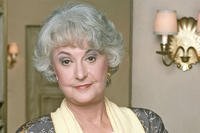Most people called it the "Cold War," but it was "a hot war for the operators" like Maj. Arthur D. Nicholson Jr., according to a former Defense Intelligence Agency agent. Nicholson, a member of the U.S. Military Liaison Mission (USMLM) to Potsdam, Germany, became one of the last casualties of that war.
On March 24, 1985, Nicholson and other members of the USMLM team of 14 were on a routine monitoring drive in Ludwigslust, East Germany (northwest of Berlin). The missions had been established by a 1947 U.S.-Soviet agreement that provided for the exchange of intelligence gathering missions.
"He wanted to be out there, and he needed to be out there, close to what he considered the cutting edge," said his commanding officer, then-Col. Roland LaJoie.
The monitoring team was near a garage-like shed when Sgt. Jessie Schatz heard Nicholson cry out, "Jess, I'm shot." A Soviet sentry at the structure had shot the U.S. officer in the chest; Schatz said Soviet soldiers prevented him from approaching and administering first aid. Nicholson died on the site.
The Soviets immediately claimed Nicholson had violated the terms of the 1947 agreement and was in an off-limits area. U.S. investigations later showed that Nicholson's actions were within the protocol governing USMLM missions.
At a ceremony marking the return of Nicholson's body on March 30, 1985, then-Vice President George H.W. Bush called him "an outstanding officer murdered in the line of duty."
LaJoie agreed: "It was not a battle; it was not a fair fight. He was unarmed, in uniform, in broad daylight ..." As Nicholson was buried on March 31, Secretary of State George Shultz and Soviet Ambassador Anatoly Dobrynin met to discuss how to prevent future incidents.
They took Nicholson's life and death as seriously as that officer had his work. "He constantly sought ways to increase contacts with Soviet officers so [we] could get to know each other better," LaJoie said.
While the Cold War stakes were tragically high for Nicholson, his mission was not in vain. Less than five years after Nicholson's death, the Berlin Wall came down on Nov. 9, 1989. For a man of whom his commander said, "He not only passed the tests, he set the standards," this breakthrough would have been a victory.
Want to Know More About the Military?
Be sure to get the latest news about the U.S. military, as well as critical info about how to join and all the benefits of service. Subscribe to Military.com and receive customized updates delivered straight to your inbox.















